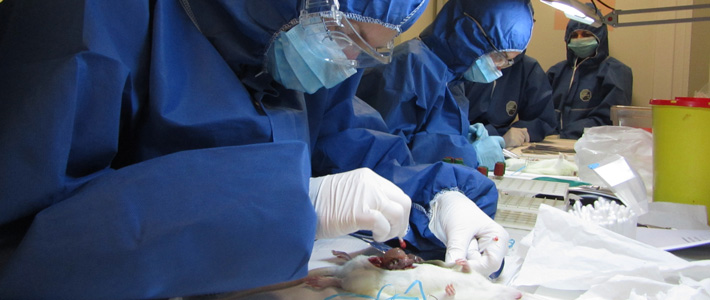
1. Seralini study: France launches long-term study on the risks of GMOs
2. No more GMO open field trials in France
1.Seralini study: France launches long-term study on the risks of GMOs
Philippe Collet
Actu-Environnement, July 15, 2013
http://www.actu-environnement.com/ae/news/etude-risques-environnementaux-sanitaires-long-terme-seralini-anses-efsa-19049.php4
GMWatch translation from French original
On Friday, July 12, the research department of the General Commission for Sustainable Development (CGDD) Department of Ecology issued a call for the establishment of a consortium under the research program Risk'OGM, a national research program on the environmental and health risks of GMOs. "The purpose of this call for the creation of a consortium is to investigate the health effects of long-term consumption of GMOs," announced the ministry, which added that the grant to the consortium will be "in the order of 2.5 million euros. "The call for the formation of the consortium is open from 12 July to 20 September 2013.
"This research program follows the commitments made by the Government in the framework of the Grenelle Environnement," the ministry said, adding that "it seeks to generate knowledge that will inform public policy."
The Seralini study the initiator
The call for the creation of a consortium is in the framework of the publication of the Seralini study, recalls the description of the call.
"In November 2012, following the publication of a study on potential health effects of NK603 maize and Roundup, the National Agency for the Safety of Food, Environment and Labour (ANSES) and the High Council of Biotechnology (HCB) were asked for their opinions," the paper says, adding that "ANSES noted the need for further scientific studies to better document the potential long-term effects of GMOs. "
Similarly, DG Health and Consumers of the European Commission has decided to fund a study of long-term toxicity of the NK603 maize over a period of two years.
In this context, "the Department of Ecology has decided for its part to fund, from 2013, a complementary research project to the project of the European Commission, implemented by a unique consortium, on health effects related to long-term GMO consumption."
---
2. No more GMO open field trials in France
Audrey Garric
Le Monde, 17 Jul 2013
http://www.lemonde.fr/planete/article/2013/07/17/pourquoi-il-n-y-a-plus-d-experimentation-d-ogm-en-plein-champ-en-france_3448936_3244.html
GMWatch English translation of French original (shortened)
France's last-remaining experimental open field trial of GMOs in France has been stopped. The National Institute of Agronomic Research (INRA) ended the trial by destroying 1000 GM poplars that have grown since 1995 in Saint-Cyr-en-Val, near Orléans (Loiret), a research site of 1300 square meters.
The properties of the transgenic trees were being studied to improve the manufacture of pulp and, since 2007, in an attempt to produce 2nd generation biofuels such as bioethanol from poplar biomass.
The reason for the decision to stop the trial: the lack of government approval for the continuation of this scientific work. "Given the time of hearing of the application for renewal of the test, to the particular climatic constraints of the spring of 2013 and their influence on the experiment, and in the absence of the expected approval, INRA had to decide on Friday, July 12 to definitively destroy the genetically modified poplars," said the institute in a press release.
LATE FILING OF RECORD
What happened to make INRA fail to obtain renewal of a license for an experiment that ran for five years, from 2007 to 2012? First problem: the organization filed its application on 20 December, 11 days before the expiration of the current authorization. However, the case should be subject to review both by the Scientific Committee and the Committee on Economic, Social and Ethical (CEES) of the High Council of Biotechnology (HCB), before a public inquiry, and then the final joint decision of the Ministers the environment and agriculture. A long process, minimum 90 days…
DIVISION OF EXPERTS
Meanwhile, the case … divides the HCB: though its scientific committee concludes that there is no danger to human health or the environment, the CEES believes that the research should not be renewed and denounced its "poorly defined goals, a fuzzy argument, and a collective limited usefulness."
The CEES wonders about the economic opportunities of these tests. In fact, in eighteen years, the INRA research has given rise to around fifteen scientific publications but have not resulted in any industrial application, and no economic partner is showing an interest now…









